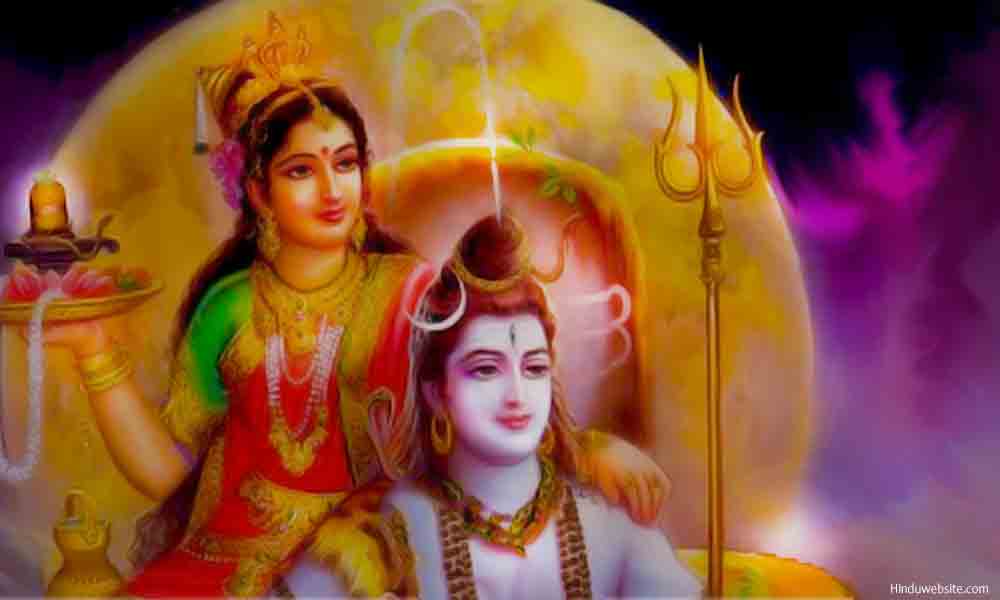
Uma Ashtottara Sathanama Sthothra Rathnam

Aum Hiam Hreem Shreem Shree Mathre Namah
Uma is the consort of Shiva and daughter of Himavanth and Mena. She goes by many names. The name also means light, splendor, radiance, fame, and night. She appears in the Kena Upanishad as the voice of the sky, after Shiva appears as a Yaksha and puts to test the might of Indra, Vayu and Agni. The following is a hymn addressed to her, extolling her virtues as the lord of the universe, Bhavanee, Rudranee and the universal, auspicious goddess.
The following is Guidelines for pronunciation are in the footnotes
Audio Help For Correct Pronunciation
umaa astotthara sathanama sthothra rathnan
1. umaa kaathyaayanee gauree kaalee haimavathi eeshvaree
shivaa bhavaanee rudraanee sharvaanee sarva mangalaa
2. aparnaa paarvathee durgaa mrudaanee chandika ambikaa
aaryaa daakshaayanee cha iva girijaa menaka athmajaa
3. skanda maathaa dayaa sheelaa bhaktha rakshaa cha sundaree
bhakthaavashyaa cha laavanya nidhi ssarva sukhapradaa
4. mahaa devee bhaktha mano aahladinee katthina sthanee
kamalaakshee dayaa saaraa kaamaakshee nithya yauvanaa
5. sarva sampath pradaa kaanthaa sarva sammohinee mahee
shubha priyaa kambu kantthee kalyaanee kamala priyaa
6. sarveshavree cha kalasha hasthaa vishnu sahodaree
veenaa
vaada priyaa sarva deva sampujitha anghrikaa
7. kadambaaranya nilayaa vindhyaachala nivaasinee
hara
priyaa kaamakotthi peethasthaa vaanchithaardhadaa
8. shyaamangaa chandra vadanaa sarvaveda svaruupinee
sarva
shaasthra svaruupaancha sarva deshamayee tathaa
9. puruhuutha sthutha devee sarva vedyaa guna priyaa
punya
svaruupinee vedyaa puruhuutha svaruupini
10. punyodayaa niraadhaaraa shunaaseeraadi puujithaa
nithya
puurnaa mano gamyaa nirmala ananda puurithaa
11. vaageesvaree neethimathi manjulaa mangalapradaa
vaagninee
vanjulaa vandyaa vayo vasthaa vivarjithaa
12. vaachaspatheer mahaalakshmeer mahaa mangala naayikaa
simhaasana mayee srishti sthithi samhaara kaarini
13. mahaa yajnaa nethra ruupaa saavithree jnaana ruupinee
vara ruupa dhaara yogaa mano vaachaam agocharaa
14. dayaa ruupaa cha kaalaajnaa shiva dharma paraayanaa
vajra shakti dharaa chaiva suukshmaangee praana dhaarinee
15. hima shaila kumaaree cha sharanaagatha rakshanee
sarvaagama
svaruupaacha dakshinaa shankara priyaa
16. dayaadhaaraa mahaa naaga dhaarinee pura bhairavi
naveena
chandramaschuuda priyaa thripura sundaree
evam ashttotthara shatham umaa naamnaam prakeerthitham
Suggestions for Further Reading
- Popular Prayers of Hindu Gods and Goddesses
- Aspects, Emanations, Incarnations and Forms of God Vishnu
- Hindu God Vishnu, the Preserver
- Dainya Ashtakam
- Sri Gopala Ashtakam
- Sri Gopala Sthavam
- Govardhana Ashtakam
- Sri Govardhana Dharashtakam
- Sri Krishna Ashtakam
- Sri Krishna Ashtakam by Vallabhacharya
- Sri Krishnashraya Sthothram
- Sri Krishna Dvadasanama Sthothram
- Sri Krishna Sharana Aasthakam
- Sri Krishnashtaka Sthothram
- Sri Krishna Sthothram
- Sri Krishna Thandava Sthothram
- Sri Madhurashtakam
- A Prayer During a Pradakshina at a A Hindu Temple
- Salutations to Dikpalas, Rishis and Devathas
- Ganapathya Atharvashirsham
- Shri Ganesha Ashtotthara Sathanama Puja
- Essays On Dharma
- Esoteric Mystic Hinduism
- Introduction to Hinduism
- Hindu Way of Life
- Essays On Karma
- Hindu Rites and Rituals
- The Origin of The Sanskrit Language
- Symbolism in Hinduism
- Essays on The Upanishads
- Concepts of Hinduism
- Essays on Atman
- Hindu Festivals
- Spiritual Practice
- Right Living
- Yoga of Sorrow
- Happiness
- Mental Health
- Concepts of Buddhism
- General Essays
Guidelines to pronunciation: Sanskrit is essentially a language of sounds and sound vibrations. The efficacy of Sanskrit prayers depends upon the vibrations that are produced during chanting. It is difficult to transliterate Sanskrit words into English with full justification to the original sounds. In the above stated transliteration we followed a simple approach to make it easier even for those who are not familiar with English or Sanskrit. Wherever you find repeat vowels (aa, uu, ee) please stretch the vowel sound (for ex., aa as in vast or path, uu as in cool or root, ee as in eel or feel). Similarly, "ai" should be pronounced as in gait, fight, or tight. Th should be pronounced as in think or thick, but when t alone is used, it should be pronounced as in two, top or tip.